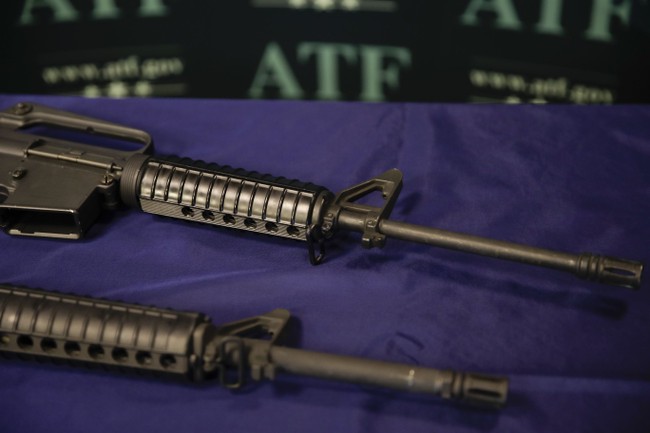So-called ghost guns have been a convenient bugaboo for anti-gun lawmakers and activists for a while now. The truth is that there’s absolutely no way to stop someone from making one if they so desire, and those who are likely to use one for illegal purposes are most definitely not going to be discouraged from doing so because of a law on the books, but many still push for these laws.
In Michigan, the state Senate just passed a slew of measures, including a “ghost gun” ban.
During the debate, though, one state senator made an interesting argument about such a law.
In a speech on the Senate floor, Sen. Jonathan Lindsey said, “our nation most likely would not exist” if a proposal to bar the sale or manufacturing of guns without serial numbers — known as ghost guns — had been law when the country was founded.
The firearms the founders of the U.S. used to hunt and to “fight back against the tyranny of the British government” were ghost guns, Lindsey said.
“If this law existed at the moment of our founding, America itself would not exist,” said Lindsey, R-Coldwater.
Now, even though I’m a pro-gun guy, I wanted to scoff at this…until I thought about it, because Lindsey is right.
None of the firearms used by the colonists were serialized, for one thing. Many were made at home with purchased components like barrels and flintlock mechanisms, then assembled in a home workshop.
By today’s standards, they’d be considered “ghost guns.”
Without those, we’d possibly still be a British holding. If not, it wouldn’t be because we fought and won our independence by shooting the tyrants in the face.
Of course, Lindsey’s comments didn’t go without challenge.
However, Sen. Mallory McMorrow, D-Royal Oak, the sponsor of the bill, said ghost guns evade accountability and can’t be traced once they’re used in a crime.
“I would also like to make an observation that at the founding of country, AR-15s also didn’t exist,” McMorrow said in her own speech on the Senate floor Wednesday.
First, gun tracing isn’t as useful as some might like to believe. Those who have looked haven’t been able to find a single instance of gun tracing actually solving a crime. While there might be exceptions, the truth is that gun tracing doesn’t really work like some want to believe. At best, it can trace a gun to the original purchaser, but after that, it’s largely useless.
And since most guns are stolen, it’s even less useful.
Now, as for AR-15s and how they didn’t exist, McMorrow is right. They didn’t.
Neither did the internet. So what?
There were a ton of repeating guns already in the works during the time of the nation’s founding, so it’s not like the framers would have been unaware of the possibility that gun technology would advance. They still wrote, “…shall not be infringed,” in the Second Amendment.
When the 14th Amendment was ratified, the Gatling Gun was a thing, and lawmakers at the time saw no reason to ban those, either, so you’ll forgive me if I’m less than sold on the idea that because a given thing didn’t exist during the time of the nation’s founding, we’re somehow supposed to throw out the Bill of Rights.
I mean, in Germany, 170 citizens of the country were raided by police over social media posts. The internet and social media didn’t exist at the time of our nation’s founding, so would McMorrow like to implement something like this here in the United States? Would he like to make that case to the American people the same way he downplays the right to keep and bear arms?
I’m not suggesting he wouldn’t want to do all of that. I just don’t think he’s got the cajones to try to sell it to the American people.
Either way, though, Lindsey is right. It’s a great argument and one I’m going to have to remember.
Read the full article here











![Former Virginia Democrat Finance Chair Busted in FBI Child Porn Case [WATCH] Former Virginia Democrat Finance Chair Busted in FBI Child Porn Case [WATCH]](https://www.lifezette.com/wp-content/uploads/2025/12/2025.12.21-01.00-lifezette-6947ef58ce946.jpg)